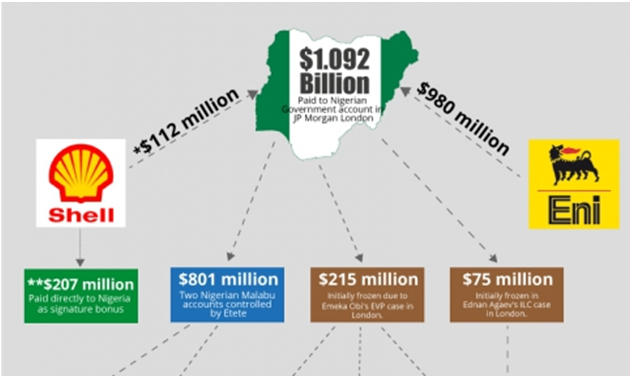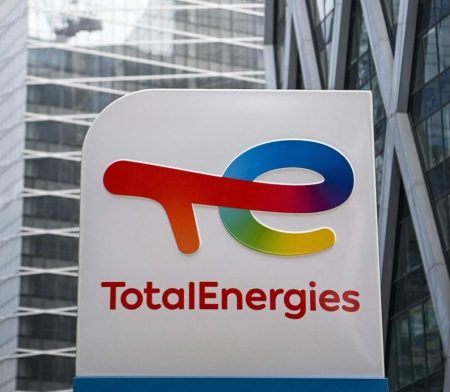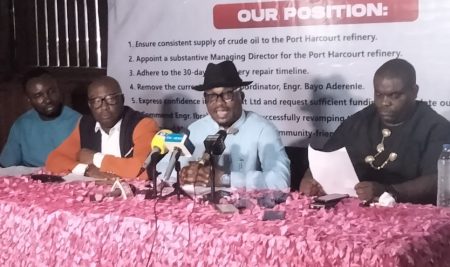
OpeOluwani Akintayo
Lagos — A former Russian diplomat, Ednan Agaev, on Wednesday, gave evidence before an Italian court in Milan over the controversial Malabu scandal, and former president, Olusegun Obasanjo, late head of state, Sani Abacha and Aliyu Gusau, who served as National Security Advisor under Messrs Obasanjo and Jonathan in 2008, have been implicated in his testimonial.
Before now, Agaev, a middleman and defendant in the case claimed that former president Goodluck Jonathan allegedly received $200 million in the controversial deal. The Russian middleman helped negotiate the transfer of the OPL 245 oil block to Shell and Eni.
However, in a fresh twist, Agaev said he knew Obasanjo for the first time in the 1980s and campaigned for the former president’s release in the 1990s.
He alleged further that Obasanjo said the block was intended for late Abacha, a former Nigerian military ruler.
According to Barnaby Pace, a campaigner at the anti-corruption group, Global Witness, who was at the Milan Court, the defendant explained that after Abacha’s death, the company fell to Etete.
According to Agaev, his job was only to find an investor because Etete was in charge of negotiating with the Nigerian government and he didn’t need any help or contacts from him.
Agaev alleged that the block was given back to Etete by Mr. Obasanjo to get political support in the south of Nigeria.
Agaev also disclosed that he was introduced to Etete by Gusau in 2008. Gusau wanted him to find a Russian oil company investor to deal with Etete and Shell.
He said Gusau later introduced him to John Coplestone of Shell, whom he (Gusau) knew because he had been head of the MI6 station in Abuja. The defendant explained that he only ever met Etete because of Malabu and Etete was the only person representing the firm on OPL 245.
When asked whether Shell knew he was being paid a commission, he replied in the affirmative, adding that he had to prove he had a mandate with Malabu because Shell employees were under very strict instructions not to discuss OPL 245.
Relationship with Etete, Adoke
Agaev was asked about the dinner in February 2010 between Eni’s Claudio Descalzi, Etete, himself and Emeka Obi, another middleman convicted for his role in the Malabu scandal. He explained that Messrs Obi and Descalzi had a good relationship based on body language. He added, however, that Shell was worried about the role of the Attorney General, Mohammed Adoke.
He also claimed that Etete told him he and Adoke were “close” and the former attorney general was in turn close to Jonathan.
Agaev alleged that he was covering Etete’s expenses, travels, and hotels. But in 2010, Shell asked him to stop paying so Etete would be financially squeezed. He alleged further that Etete told him Adoke also pressured him by telling him the government could revoke the block.
After the deal was done, he said he took Etete to Moscow, in late spring. The former oil minister was very happy, he said, adding that he got over a billion dollars but didn’t want to pay him (Agaev) so he sued for $66 million in London and tried to freeze the money.
Agaev alleged at this juncture that Etete said he had friends he had to pay back including Nigerian lawmakers.
The court asked Agaev if Adoke was one of those to be paid and he reportedly denied but added further that he doesn’t know. Agaev claimed Etete owed Adoke money from legal work before he became Attorney General.
Former president, Jonathan, had repeatedly denied involvement in the deal, however, Obasanjo, Gusau, and Etete are yet to respond to the fresh allegations against them.
Jonathan dragged in
In 2017, BuzzFeed quoted a 2017 excerpt of FBI submissions to Italian authorities wherein Mr. Agaev alleged that if Mr. Etete actually paid out bribes to Nigerian officials, “Agaev stated that he would think President Goodluck Jonathan got at least $200 million of this money.”
On Wednesday, Agaev’s statement was read but he declined to confirm the statement. Agaev claimed he was under pressure in the interview to mention a name and he mentioned Adoke, adding that he didn’t mean for his interview to be used against him.
When asked whether he thought Jonathan got money from the deal, he said his statement to the FBI should be understood that he thought it was possible money would go to Jonathan.
When confronted with his exact statement alleging that Jonathan may have received money, a defense lawyer interrupted and objected to the evidence on payments to the former president. The President of the court however silenced him even as the lawyer continued to interrupt.
Speaking further, Agaev said Etete had so much influence and he did not need to bribe anyone. Commenting on his previous statement, Agaev said it was just speculation and declined to confirm his statement.
He promptly denied any wrongdoing.



